Finding Your Creative Voice – In conversation with Nikky Lyle
Join us in conversation with Nikky Lyle as we discuss the ins-and-outs of job hunting as a junior…
Nikky Lyle is a Creative Recruiter with conscience and 10 years recruitment experience.
Vice President of Hope for Post Quarantine. TEDx 2021 Speaker, The Dots list of 100+ rising stars. D&AD President Judge 2020 and a Side Hustle Cheerleader.
Nikky has very kindly answered some of the burning questions we get through FreshMeet all the time, with the insights and experience of a recruiter, so let’s jump in.
Can you explain to us what a recruiter does, particularly in the creative industries, for the students and emerging talent out there that might have never interacted with a recruiter?
We help people find jobs. But most of the time, clients approach us first with a live vacancy, we go out and find the talent they are looking for and share those CVs and portfolios with them.
They usually have quite a specific set of requirements in mind, which is why they come to us!
We then share a candidates profile with them, the company lets us know who they would like to interview, we set that up and manage all interview feedback between the candidate and the client.
We also receive the job offer from the client and we deliver that to the candidate.

Recruiters often deal with jobs that aren’t publicly ‘on the market’. How many jobs do you think are recruited privately rather than being posted on jobs boards, and why would you say companies do this?
Sometimes it’s lack of time when a company is super busy. It’s a busy market right now and it takes a lot of time to write a job spec, put it on a job board and reach out to a recruiter and brief them etc.
What most companies do is usually let people within the team know they are hiring, they will then potentially promote people who work for too into the role.
Or they will ask the team if they know anyone who is looking for work who could be a good fit for their agency before then advertising the vacancy outside of their organisation.
When you’re looking specifically at a junior position, (whether it’s designer, animator, creative etc…) what are you looking for in a portfolio?
Everyone is looking for the creative’s voice. They want to know what’s unique about you and what ideas you have contributed to a project, so they can get a good understanding of what type of creative you’ll be to work in the team.
And conversely, what are some red flags that juniors shouldn’t include in their portfolio?
I’ve produced some fool-proof guides covering this which are on sale now.
But I’d say not to include photos of yourself in your portfolio. Also don’t put work you’re not excited about in your portfolio. Because interviewers want to see you present with passion. If you’re talking through a project that doesn’t fire you up, it’s not going to fire anyone else up.
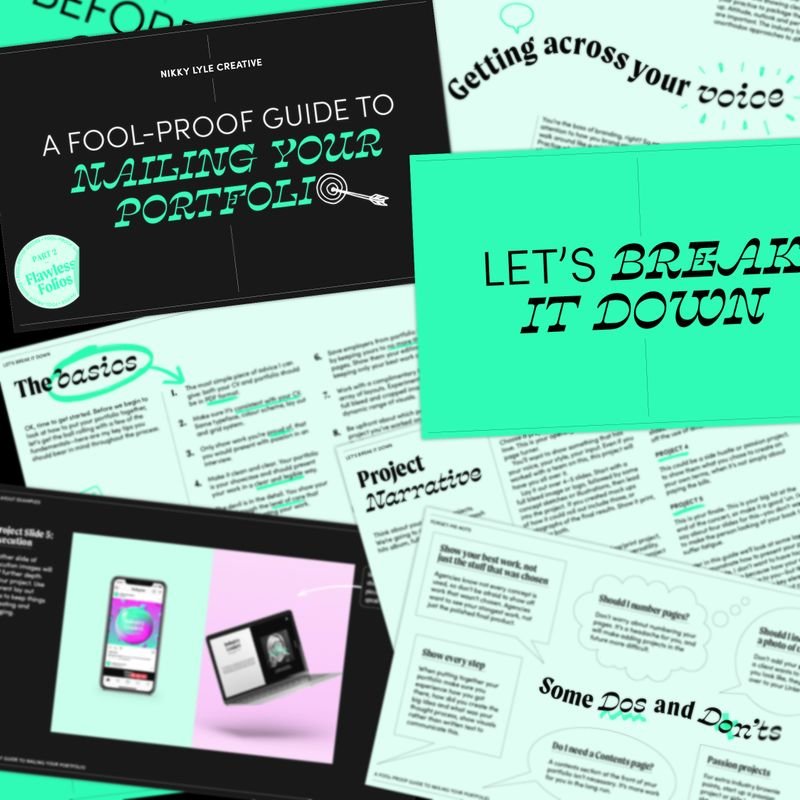
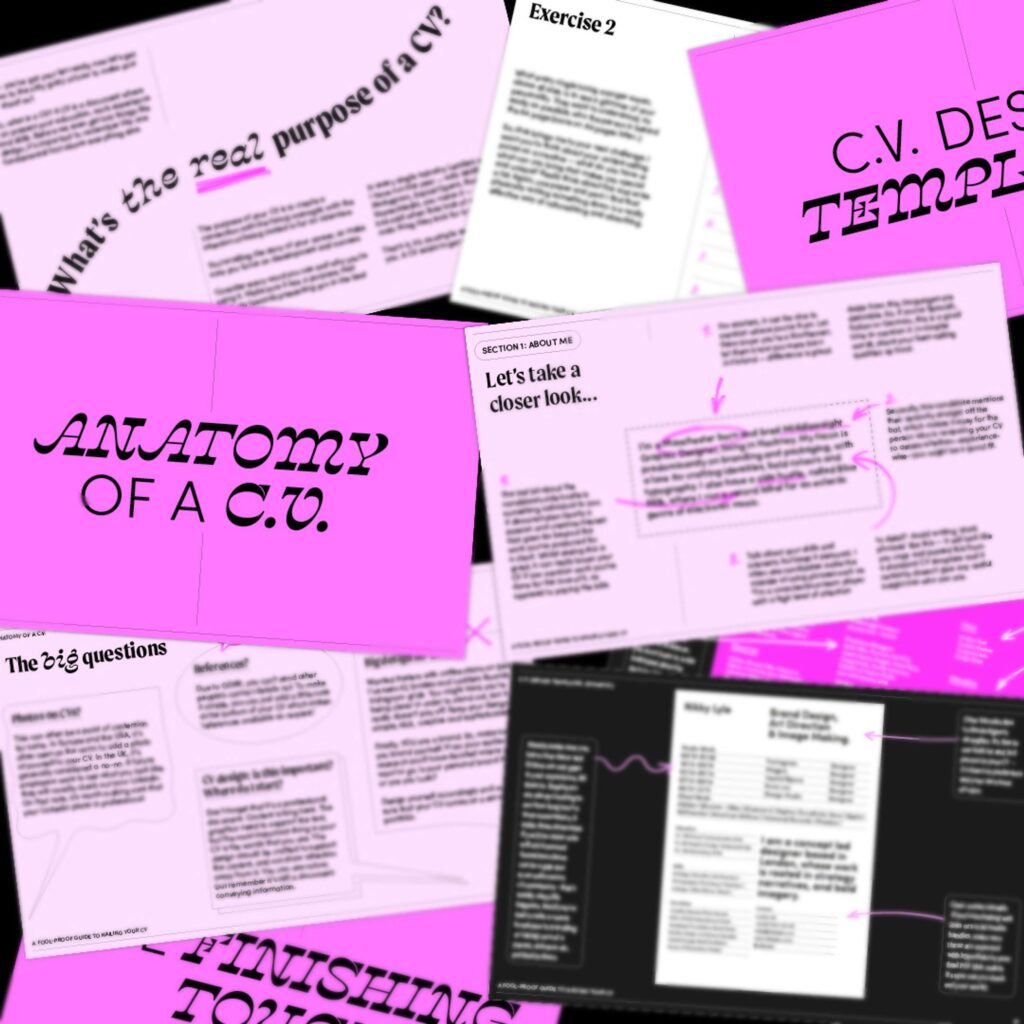
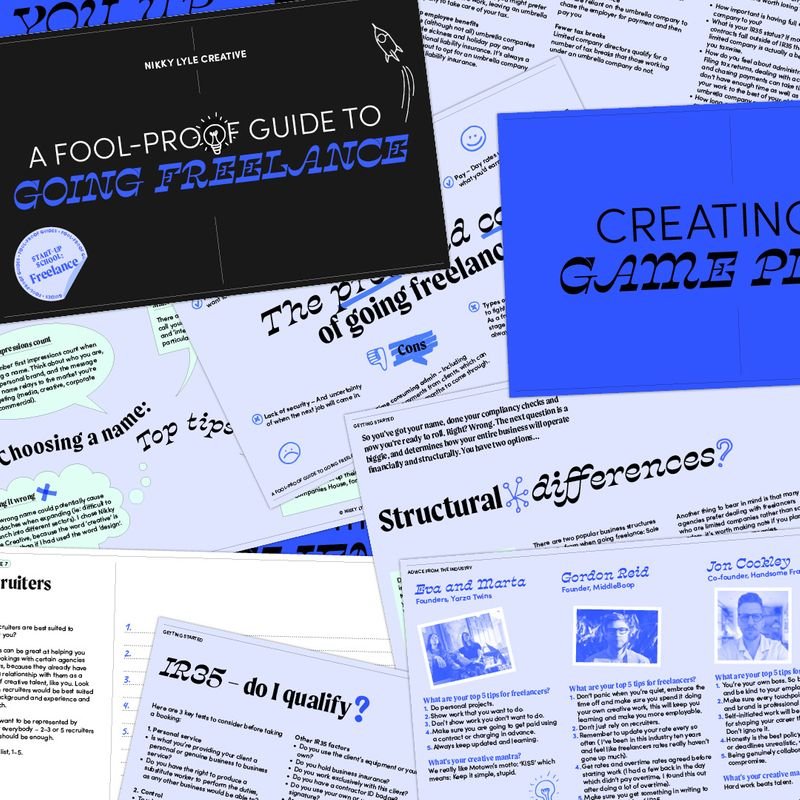
Do you think it makes a junior stronger to have a few internships or placements under their belt or do you think it’s perfectly okay to jump straight into a junior role?
Internships are great to get a feel for the market and a flavour of different environments. But if you land a junior role with a company you love, there’s no reason why you shouldn’t stay there and learn your craft there.
But if you want to work some of the big branding agencies, I’d recommend starting there. Because if you jump into a junior role with a corporate agency that doesn’t excite you, then after 5 years you try to make the move into branding agencies, that’s going to be a challenge.
Mainly because you’ll be competing with designers who worked for those big branding agencies for 5 years from day 1.
It isn’t impossible to pivot and move direction, Matt Dunn is a good example of this, but it’s worth keeping in mind.
Do you think there’s more experience to be earned working in a famous, large agency or in smaller boutique teams?
There are pros and cons to both. Big famous agencies give you access to big famous brands. But often they carve their creative teams into more specific roles with certain brands. Which can sometimes have restrictions.
Boutique agencies mean you get to wear more hats and work on more rebrand and identity projects.
But that being said, your portfolio doesn’t need to be restricted to the work you create for the agency you work for. That’s just the stuff that pays the bills.
For your portfolio you should always be creating more of the type of work you want to produce. Self initiated projects can help with that.
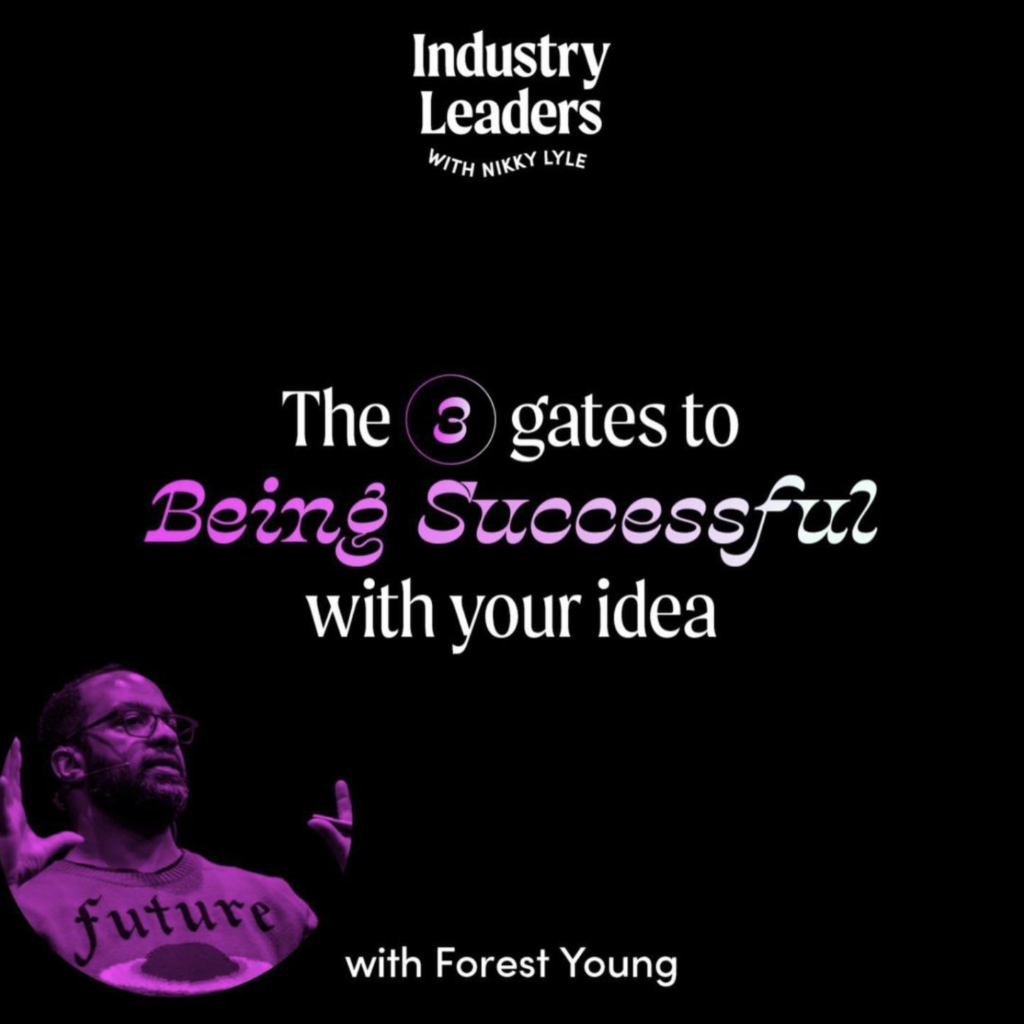
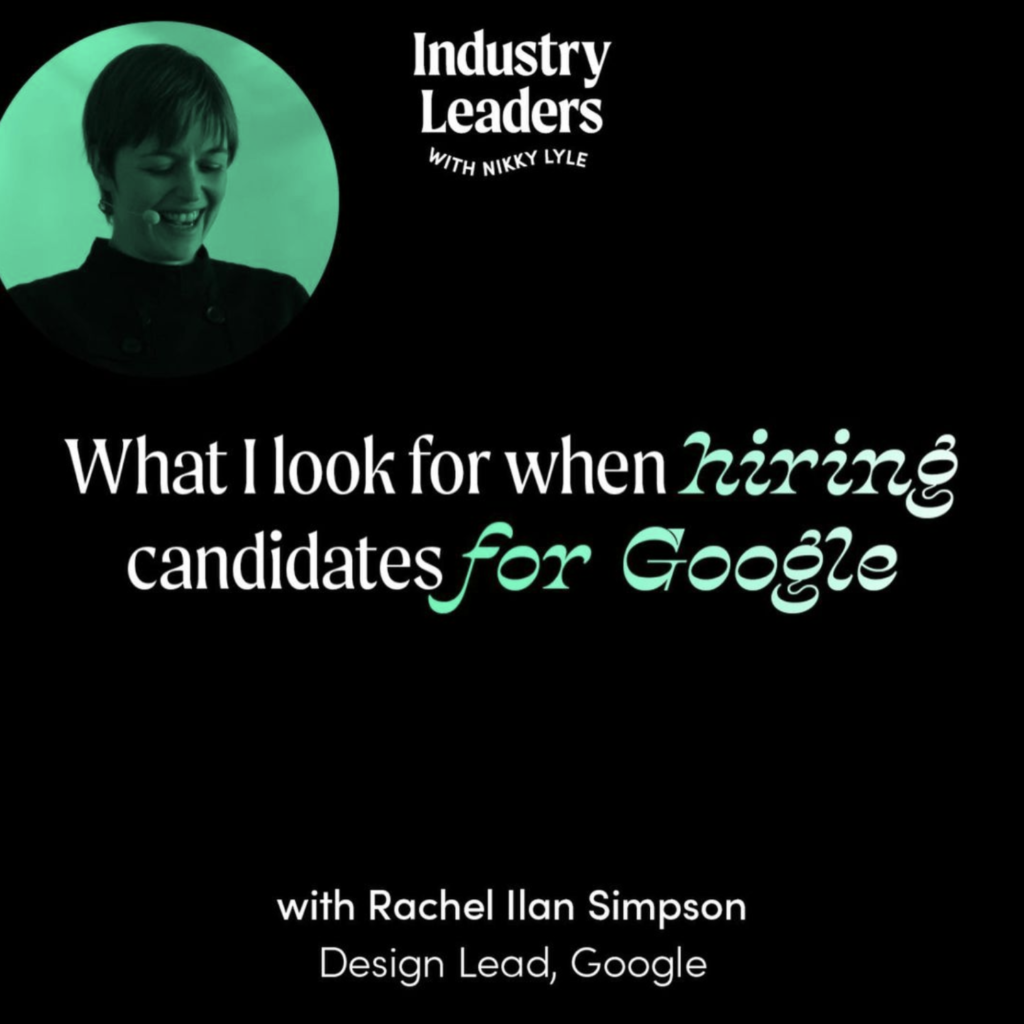
Nikky’s Podcast Industry Leaders is available on Spotify.
If there are creatives out there reading this who are currently unemployed, what can they be doing right now?
Don’t forget, you only need ONE job. If you’re applying to a 100 agencies a day and your experience isn’t quite right, you’ll just receive 100 rejections a day and feel disheartened.
You’re better off using that time to work on self initiated projects, or do some cool collaborations and have a super strategic approach and only reach out to a handful of agencies a week who you REALLY want to work for.
And lastly, how does a junior get in contact with a recruiter? Is it more of a ‘wait to be approached’ scenario or can they do something to get noticed?
Reach out to a recruiter by sharing your CV and portfolio. That recruiter will let you know if they can represent you or not.
My area is pretty niche and focused on branding. Whereas other recruiters out there might cover other areas, like Advertising.
Thanks to Nikky for taking time of out her busy schedule to share this knowledge today! And keep your eyes peeled on Nikky’s Instagram or LinkedIn to see her new project with Domestika.
You can find Nikky’s channels below




